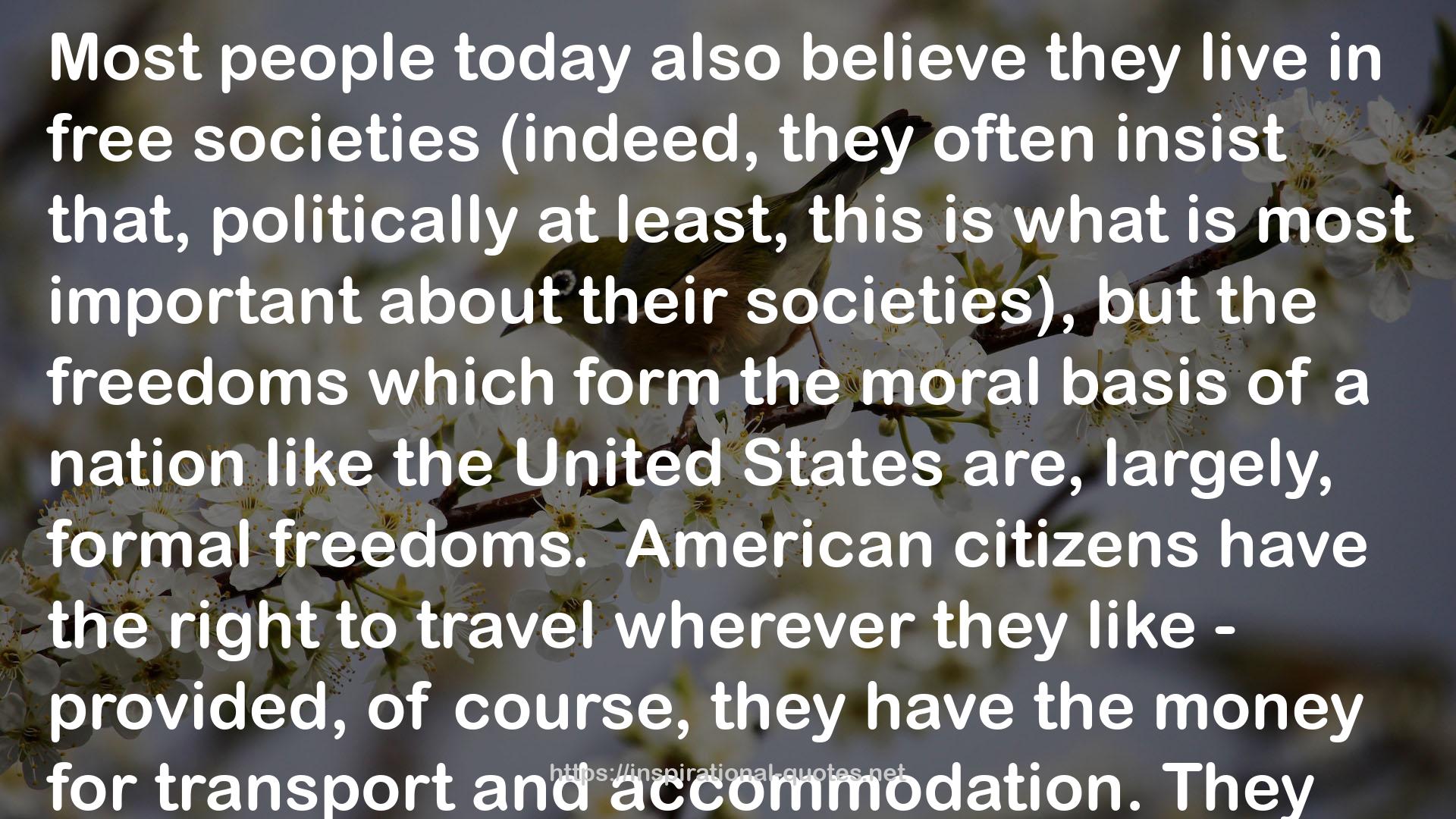" Most people today also believe they live in free societies (indeed, they often insist that, politically at least, this is what is most important about their societies), but the freedoms which form the moral basis of a nation like the United States are, largely, formal freedoms.
American citizens have the right to travel wherever they like - provided, of course, they have the money for transport and accommodation. They are free from ever having to obey the arbitrary orders of superiors - unless, of course, they have to get a job. In this sense, it is almost possible to say the Wendat had play chiefs and real freedoms, while most of today have to make do with real chiefs and play freedoms. Or to put the matter more technically: what the Hadza, Wendat or 'egalitarian' people such as the Nuer seem to have been concerned with were not so much formal as substantive ones. They were less interested in the right to travel than in the possibility of actually doing so (hence, the matter was typically framed as an obligation to provide hospitality to strangers). Mutual aid - what contemporary European observers often referred to as 'communism' - was seen as the necessary condition for individual autonomy. "
― David Graeber , The Dawn of Everything: A New History of Humanity
